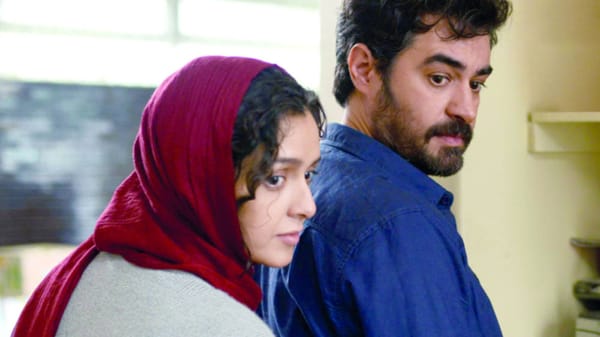Who's Gonna Love Me Now? An intimate look at an Israeli man's search for belonging
In this well-balanced documentary, an HIV-positive gay Israeli man searches for acceptance in London

Who’s Gonna Love Me Now is a touching documentary which follows the story of Saar Maoz, a 40-year-old Israeli man living in London. Maoz is a proud member of the London Gay Men’s Chorus, which has been a source of support and love through a difficult time in his life. The bulk of the documentary, however, revolves around Saar’s conservative family in Israel, their relationship with his sexuality, and – perhaps most importantly – their attitude to his diagnosis of HIV.
Filmed over a period of several months, we follow Maoz at an important point in his life, reconnecting to his family and his roots and considering what he wants for his future. At the heart of this is the relationship Maoz has with each of his parents, especially as we see how far they have come in their acceptance of him. Towards the beginning of the film Maoz reads to us a letter he received from his father at the age of 23: undeniably curt, it demands he returns to Israel, insisting there is no place for him anywhere else. Although not explicitly said, it is clear that his sexuality is the centre of the message. As Maoz unpacks his emotions to the letter, he makes this clearer – this is his father telling him to stop being who he is, telling him to be straight.
This tone doesn’t persist throughout this documentary, however. Who’s Gonna Love Me Now is essentially about Maoz’s journey to reconciliation with his family. In the intervening decades we can see the changes in his parents and their growing acceptance of him. However, not all the relationship are so positive, and his siblings are much less accepting: particularly memorable is one brother who blames Maoz for his diagnosis and insinuates that Maoz’s presence in Israel is a threat to his children. The ignorance and clear homophobia is frustrating. However, seeing Maoz confront him about this is a clear moment of triumph in the film.
Although billed as a key part of Maoz’s story, and featuring heavily in the opening scenes, the Gay Men’s Chorus is far from the focus of this film. Although given several instances of Maoz’s happiness with the chorus, their aspect of the story is not explored in great detail. This reflects the general treatment of Maoz’s life in London by the film: we see nothing of his job at Apple and, when introduced to any of his friends, these interactions are altogether too brief. Its clear that the focus of Whos Gonna Love Me Now is Maoz’s relationship to his family and heritage, but the failure to flesh out his current life in London makes the film seem distant. We know what Maoz has waiting for him in Israel if he returns, but only a vague picture what he has in London if he stays.
The pacing of this documentary is perfect, and the intimate moments between Maoz and his family are captured beautifully, whilst still allowing us to see how his life has changed over the years. The overall message of Whos Gonna Love Me Now is undeniably a positive one, complemented perfectly by the film’s understated tone throughout.








